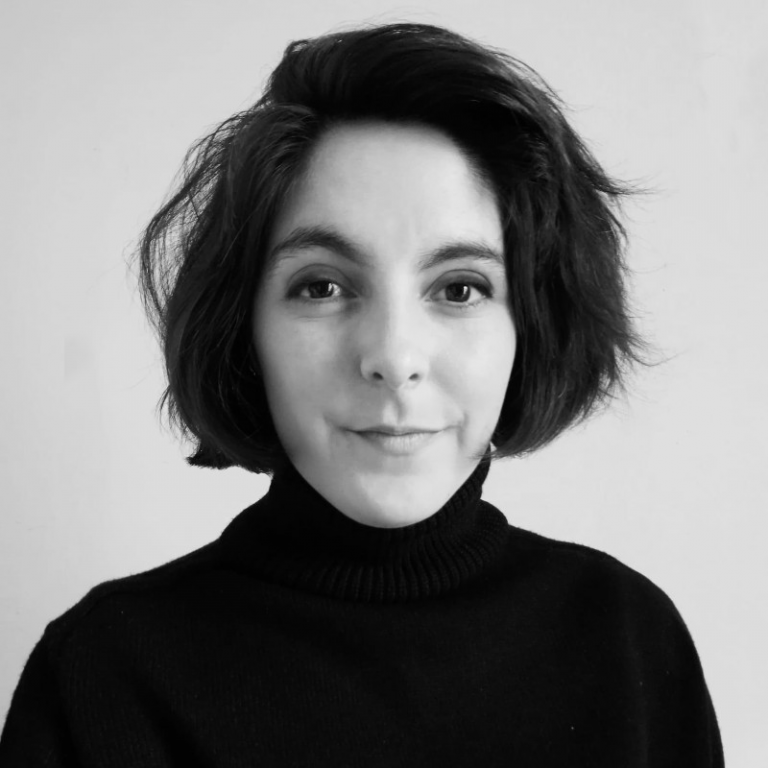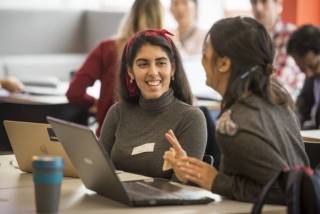Francisca Pimentel Fuentes was drawn to the theoretical/project-based approach of the Architecture and Historic Urban Environments MA.

Francisca Pimentel Fuentes is a freelance architect from Chile who recently graduated from The Bartlett School of Architecture with an Architecture & Historic Urban Environments MA. She is currently residing in Barcelona, Spain and working with the Chilean architecture and restoration studio Tándem on the restoration design of the church and convent of Curimón in the Chilean Central Valley.
What was your journey to UCL?
In 2018, I decided to study for a postgraduate degree that aligned with my interests in history and architecture, and nature and human dynamics, in order to acquire new tools that would allow me to respond to contemporary problems associated with heritage practice. The Architecture and Historic Urban Environments MA program was one of the few pioneers in the area with a theoretical/project-based approach. I received an offer in 2019, and won a scholarship from the government of Chile, but I deferred it to 2020 to improve my English level.
What was your main area of focus?
During my studies I explored personal interests that conflicted with heritage practice. Gender, decolonisation, and the use of local materials/technologies were the key subjects that inspired my theoretical and practical work development.
What interested you in studying at The Bartlett?
For me, it was fundamental that my postgraduate training was placed in an international context, in an innovative programme, which allowed me to think about design alternatives from a new perspective. Studying at The Bartlett would allow me to learn more about sustainable strategies from high standard international referents, while gathering a highly specialised, rigorous, critical and design-led focus.
However, what made me decide to go to The Bartlett, and specifically this programme, was its critical and provocative stance facing the social and environmental crisis scenario. What and where to study is for me a political act, and I was interested in a university in line with my interests and convictions.
How did you find studying at The Bartlett and student life in general?
The year was incredibly enriching, personal and academically. I enjoy getting involved with new people and cultures, particularly outside the classroom, in more every day and informal situations. The most challenging thing for me, was overcoming the language barrier. In the beginning, I felt insecure, but I soon realised that it was natural to have some problems with my non-native English and that I couldn’t let it limit me.
What was your experience of the community at UCL?
I made a group of very close friends both inside and outside the course. I formed a lot of meaningful bonds with some of those who never travelled to London because of the pandemic, and also the online mode urged those who decided to travel to London to stay closer to accompany and support each other. The lockdown also became an opportunity to share with my flatmates, whom I consider my own London family.
How did you find living and studying in London?
Although I always wanted to live in London, I never really imagined what it would be like to live here. It is an incredible, dynamic, and multicultural city, full of attractions. Getting to know London during the pandemic was a unique opportunity to appreciate it from a more introspective point of view, revealing details that a large crowd does not always allow to see. This contrasts sharply with the London I left a few months ago, with much more movement and life, but equally stimulating.
What have you gone on to do post-graduation?
Luckily, although I am abroad, I’m still in touch with my former colleagues, and working together on various public projects. For instance, I am currently coordinating the restoration of an industrial complex in the extreme south of Chile to host a new community and cultural space for the locals. I am also collaborating in the restoration design of the church and convent of Curimón in the Chilean’s central valley.
How do you feel the skills/knowledge you acquired at UCL have contributed to your professional life?
The programme’s theoretical and practical methodology, complemented by the weekly discussion of contemporary issues, provided me with a refreshing and critical approach to rethinking heritage practice, addressing hegemonic power relations and the climate crisis that compromises our historic environments today. Thus, I felt encouraged to value sustainable strategies, construction techniques and materials, essential to embrace local and circular development. Overall, I perceive this knowledge as a significant advancement in my professional career, which I hope to apply contributing to the sustainable development of the Chilean heritage sphere.
What advice would you give to others thinking about applying to study at The Bartlett?
Make the most of the crits and feedback, but above all, take advantage of these events to learn from incredibly talented fellow students. In that sense, I think it is essential not to close yourself in your own work but to take the time to see what others are thinking and coming up with. Finally, never forget that the experience of studying here is also the opportunity to live in a city as incredible and dynamic as London and share with people with different backgrounds and life experiences.
The Bartlett is the UK’s largest multidisciplinary faculty of the built environment. Explore our full range of Postgraduate courses, the study and research resources, and technical facilities on offer, and the scholarships opportunities available to you.
 Close
Close


